# eco
12 posts in `eco` tag
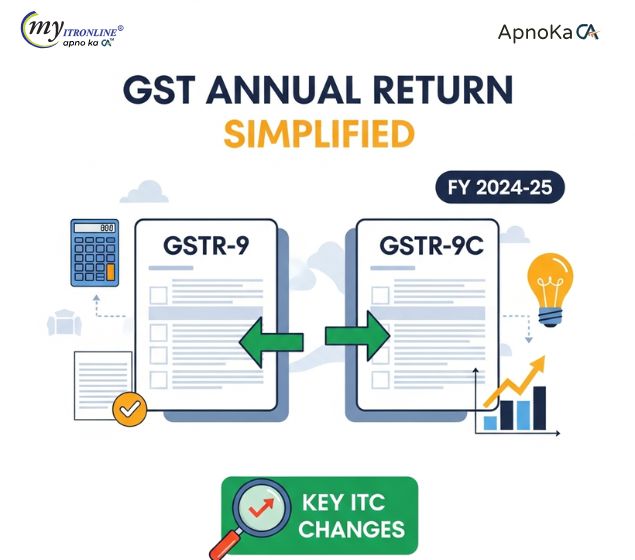
GST Annual Return Simplified: Key ITC Changes in GSTR-9 & GSTR-9C for FY 2024-25
A simplified guide to ITC changes in GSTR-9 and GSTR-9C for FY 2024-25, covering late claims, reversals, reclaims, and reconciliation requirements.

New Business Surge in India: What the Numbers Show
India is witnessing a surge in new business registrations, with companies up 10% and LLPs up 75% in November. Over 151,000 companies and 58,635 LLPs have registered this year. Easier taxes, strong demand, and simple rules are driving growth. The “base effect” explains why growth percentages look smaller now, but business energy remains strong.
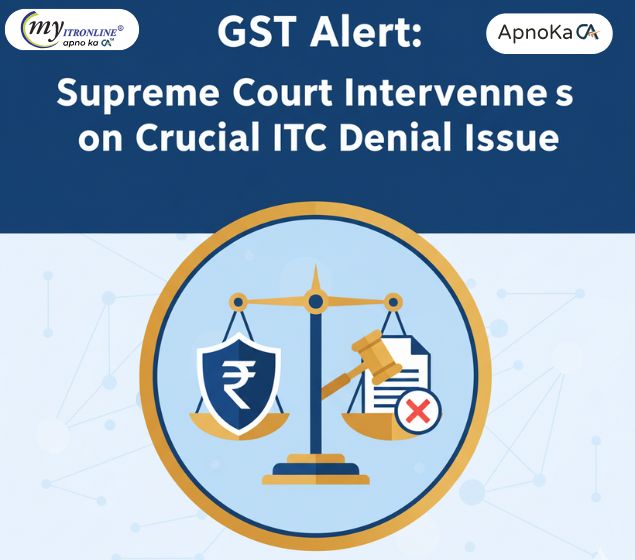
GST Alert: Supreme Court Intervenes on Crucial ITC Denial Issue
The Supreme Court of India, in the interim order of Roshan Sharma v. Deputy Commissioner of Revenue, State Tax & Anr., has issued notice and stayed the High Court's order, agreeing to consider the validity of Input Tax Credit (ITC) denial solely because of the retrospective cancellation of a supplier's GST registration. The case also centrally addresses the violation of natural justice due to the denial of cross-examination and access to crucial evidence like Fastag data.
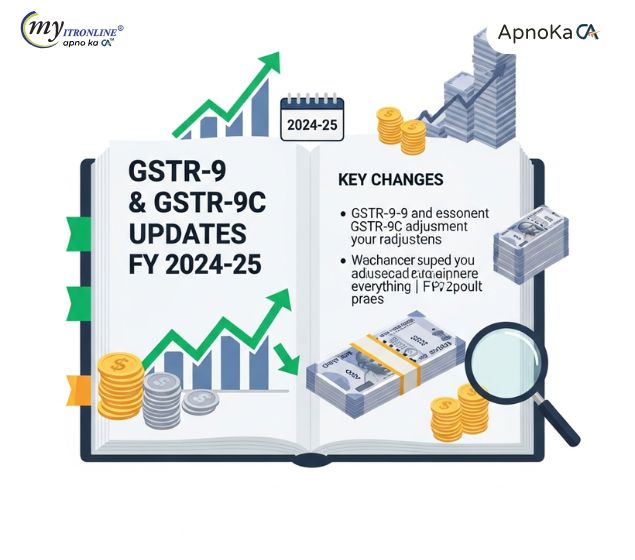
Key Changes in GSTR-9 and GSTR-9C for FY 2024-25: Everything You Should Know
The GST portal has opened GSTR-9 and GSTR-9C for FY 2024-25 with a filing deadline of December 31, 2025. This guide explains the key changes in both forms, filing thresholds, auto-population details, and practical tips to file on time and avoid penalties—written in clear, simple language.
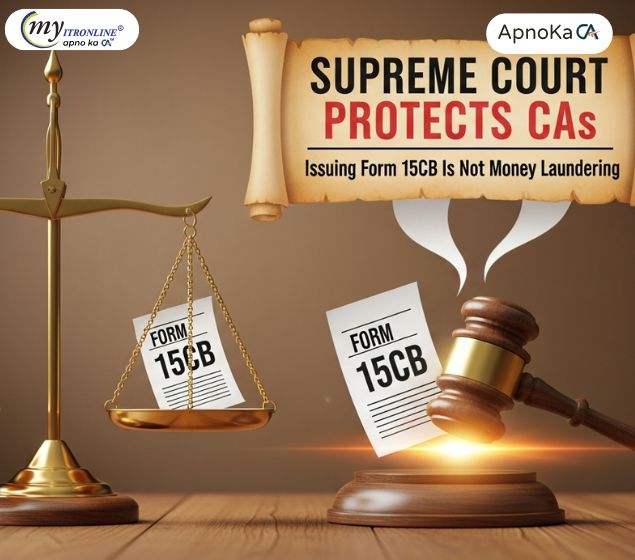
Supreme Court Protects CAs: Issuing Form 15CB Is Not Money Laundering
The Supreme Court of India has upheld that Chartered Accountants cannot be prosecuted for money laundering simply for issuing Form 15CB, as it is a statutory duty under the Income Tax Act. This ruling protects professionals from being unfairly targeted and clarifies the limited role of CAs in compliance matters.

Premiums Surge as Health Insurance Demand Rises
The health insurance sector in India is witnessing strong growth after the GST cut on premiums. Stand-alone insurers saw a 38.3% rise in October, overall premiums grew 7.7% in FY26, and health insurance now makes up nearly 40% of the non-life insurance market. With leaders like Star Health, Niva Bupa, Aditya Birla, and New India Assurance driving momentum, this is the right time for families to secure affordable health coverage.

Supreme Court Relief: Buyer Not Liable for Seller’s Default on ITC
The Supreme Court has clarified that a genuine buyer cannot be denied Input Tax Credit (ITC) merely because the seller failed to deposit tax. In the case of Commissioner Trade & Tax Delhi vs. Shanti Kiran India Pvt. Ltd., the Court emphasized that if purchases are genuine, invoices valid, and payments made through banks, ITC should not be denied. This ruling strengthens taxpayer rights and prevents innocent buyers from being penalized for the seller’s default.

Supreme Court Backs Genuine Buyers: No ITC Denial for Seller’s Default
The Supreme Court has ruled that genuine buyers cannot be denied Input Tax Credit just because the seller failed to deposit tax or lost registration. This landmark decision under DVAT sets a strong precedent for GST cases too, ensuring fairness and protecting honest taxpayers.

Big relief for taxpayers: Supreme Court protects buyers from seller’s default
The Supreme Court of India has held that a genuine buyer cannot be denied ITC merely because the seller failed to deposit tax. In M/s Shanti Kiran India Pvt Ltd vs Commissioner, Trade & Tax, Delhi (October 9, 2025), the Court emphasized fairness: action should target the defaulting seller, not the compliant purchaser. While the case arose under the Delhi VAT Act, its reasoning strongly influences GST disputes under Section 16(2)(c). Businesses gain a constitutional shield against automatic ITC denials but must continue robust documentation, vendor checks, and genuine transactions. Example: if you paid ₹100 in tax against a valid invoice and acted in good faith, your ITC right stands.
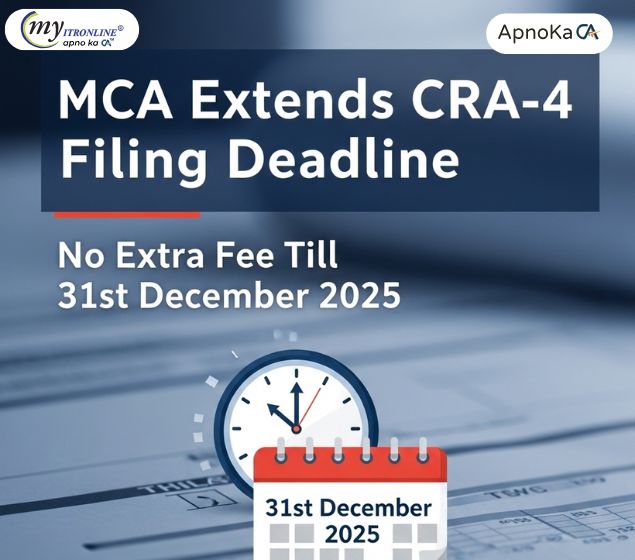
MCA Extends CRA-4 Filing Deadline No Extra Fee Till 31st December 2025
The Ministry of Corporate Affairs (MCA) has extended the deadline for CRA-4 filing without extra fees till 31st December 2025. This move helps companies and cost auditors adjust to the new form rollout on the MCA V3 portal and avoid penalties.
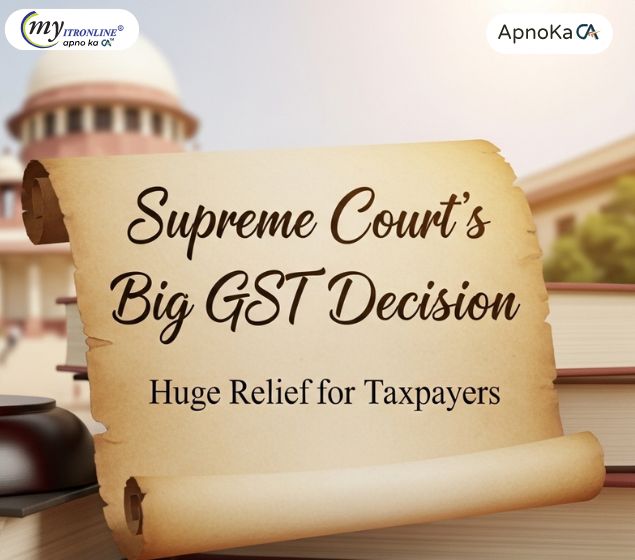
Supreme Court’s Big GST Decision Huge Relief for Taxpayers
The Supreme Court of India has ruled that once a taxpayer pays the 10% pre-deposit required to file a GST appeal, the government cannot freeze bank accounts or recover additional funds. This landmark decision protects honest taxpayers and ensures fair enforcement under GST law.
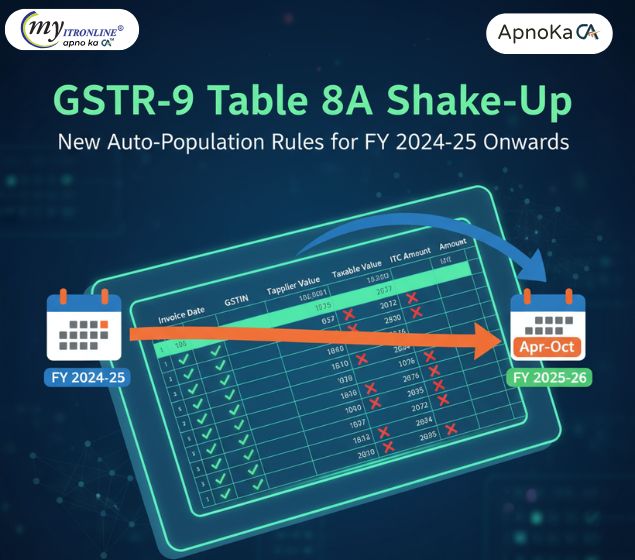
GSTR-9 Table 8A Shake-Up: New Auto-Population Rules for FY 2024-25
GSTN has changed how Table 8A in GSTR-9 is auto-filled. Starting FY 2024-25, it will include invoices from both the current and next financial year, making ITC reconciliation more accurate. Learn what’s included, what’s excluded, and how to prepare.
